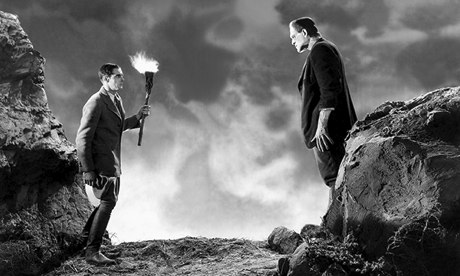In Volume III, Victor promised the ” Monster” that he would create a mate for him, so he would not feel lonely anymore. But victor fears that maybe his new creature would reject and repulsed by his appearance. it was really interesting how the monster showed his desire of having somebody else like him in order to not feel reject anymore. He confronted victor and asked him if he dared to break and destroy his hopes and that if he dare to do that he would ruin and attack him on the date of his wedding. Victor was really worry about it, because he did not want to traumatize Elizabeth and also he did not want Elizabeth to see the monster and see how the monster kill him.
It touched my heart how the volume ends, the monster confessed Walton how he is feeling about killing his creator and also how he is felling about bring pain and sorrow to those who love victor. He also told Walton that he just wanted to be happy and feel loved. he asked the question ” Am I to be the only criminal, when all humankind sinned against me?” .The monster is really upset and he wants to end with his life .
1. Why victor thinks that she (new creature) would reject the monster?
2. why the monster wants to end his life at the end of the volume ?

